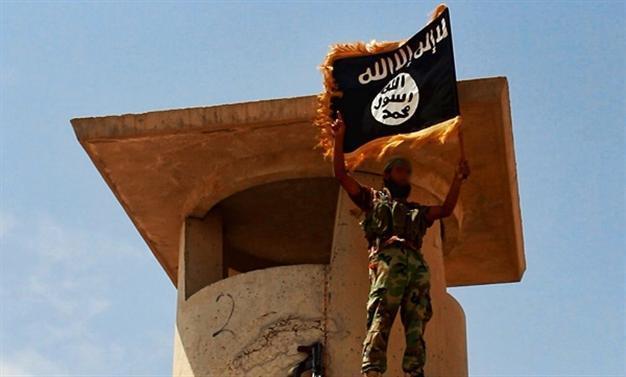US may send in drones to Iraq to battle jihadists
WASHINGTON - Agence France-Presse

An image grab taken from a propaganda video uploaded on June 8 by the ISIL allegedly shows the militants driving in vehicles near the central Iraqi city of Tikrit. AFP Photo / HO / ISIL
Washington vowed June 12 to boost aid to Iraq and is mulling drone strikes amid fears Iraqi forces are crumbling in face of militants increasingly emboldened since the U.S. withdrawal. U.S. Vice President Joe Biden, meanwhilei called for the "safe and immediate" return of 49 Turkish citizens kidnapped from the consulate in Mosul.During a call with Turkish Prime Minister Recep Tayyip Erdoğan, Biden said "the United States is prepared to support Turkey's efforts to bring about the safe return of its citizens."
Iraqi officials have already privately asked the U.S. to consider sending in drones to root out jihadists from the Islamic State of Iraq and the Levant (ISIL), who in a lightning offensive have seized a swathe of the north.
The request has been turned down in the past, but Washington is now weighing several possibilities for more military assistance to Baghdad, including drone strikes, a U.S. official told AFP on condition of anonymity. Resorting to such aircraft - which remain highly controversial in Afghanistan and Pakistan - would mark a dramatic shift in the U.S. engagement in Iraq, after the last American troops pulled out inlate 2011.
"The United States has been fast to provide necessary support for the people and government of Iraq," National Security Advisor Susan Rice told a Washington think-tank June 11. "We are working together to roll back aggression and counter the threat" posed by ISIL to Iraq and the region, Rice said.
But she insisted the U.S. "must do more to strengthen our partners' capacity to defeat the terrorist threat on their home turf by providing them the necessary training, equipment and support." State Department spokeswoman Jen Psaki stressed there were no current plans to send U.S. troops back to Iraq, where around 4,500 Americans died in the eight-year conflict.
She also denied the offensive, in which the militants seized northern Mosul and then Tikrit, had caught Washington by surprise or marked a failure of U.S. policy in the country it invaded in 2003.
U.S. officials also said they would try, working with the international community, to help an estimated 500,000 people who have fled their homes in Mosul.
ISIL calls for 'marching' to Baghdad
ISIL's spokesman called on the militants to march to Baghdad, slamming Iraqi Prime Minister Nuri al-Maliki for being incompetent.
Amid reports that the Iraqi army had simply fled Mosul in face of the offensive, security expert Bruce Riedel told AFP "there's plenty of room for finger-pointing for the debacle in Iraq."
"Let's not forget the disastrous decision to start the war in 2003 as the place to begin finger-pointing," the senior fellow at the Brookings Institution said. The Pentagon needed to make a fundamental assessment of the difficulties facing the Iraqi military, he said.
"If it's a problem that the Iraqi military is broken at its core, then there's no point in sending more Humvees and Apaches," Riedel added.
"It's a point of how do we minimize our losses and live with what might be rapidly be developing as a de-facto partition of Iraq between a Sunni extremist state and a Shiite state."
















